Mississippi Cannabis News
Pain-Pill Use Fell As Medical-Cannabis Use Grew, Report Says
Published
3 months agoon
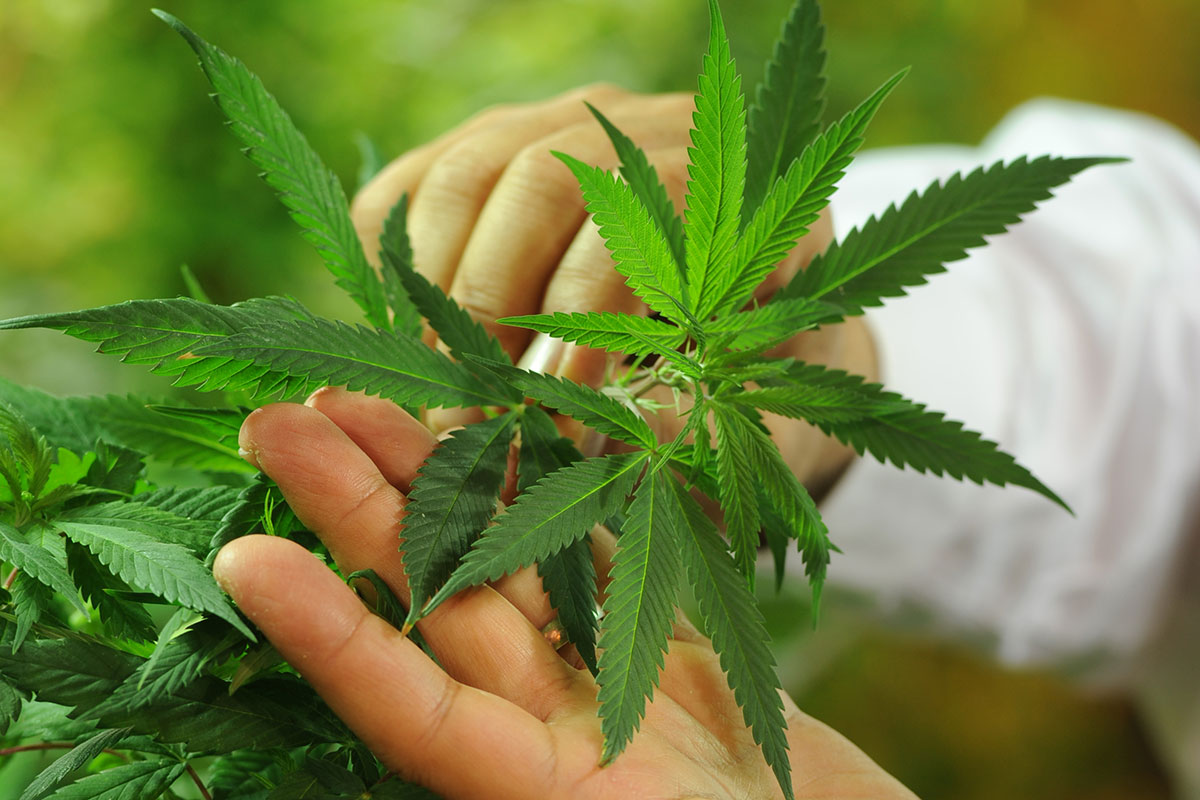
For years, Elizabeth used prescription pain medicine to relieve her symptoms from her rare and painful gastrointestinal condition, sphincter of Oddi dysfunction, until she smoked cannabis for the first time in November 2018 at her doctor’s recommendation.
“He had told me at one point in time, ‘You know, if we were in a state that would allow for medical marijuana, I would write a prescription immediately. I am telling you as your doctor and your friend: If you can find it, if you can get it and it helps, go for it,’” she told the Mississippi Free Press in an interview on April 29.
Elizabeth asked to go by a pseudonym instead of her real name because she works in Tennessee, where medical and recreational cannabis are both illegal.
She had taken hydrocodone, had several surgeries and even tried CBD, but nothing was alleviating her pain. Doctors increased her dosages and then prescribed her fentanyl patches because she was hurting all day, every day, for seven days a week. Before her dad passed, Elizabeth made a promise to him that she would find a way to get off the narcotics. So, she listened to her doctor, stopped taking the medicine “cold turkey” and smoked weed for the first time on Nov. 28, 2018.
“And that was the last pain pill I took aside from having some dental work done a few years ago,” she said. She used to take a dozen prescription medications but is now down to just three.
At the time, Elizabeth lived in Tennessee, so she bought marijuana from street dealers. She found out in 2022 that Mississippi had legalized medical cannabis and decided to move to the Magnolia State, where she would also be closer to her family. She moved to Long Beach, Miss., in July 2023 and got her medical-cannabis card in October.
“I feel more in control on marijuana. I don’t have to worry about overdosing on it, and I don’t have to worry about really any of the side effects—there aren’t any. And this helps with my nausea; I don’t have to take my nausea meds,” she said.
While cannabis does not fully relieve Elizabeth’s pain like opioids did, she said she will smoke and feel relaxed for up to eight hours. Some days, she said she does not need to smoke, but others she smokes as soon as she wakes up to relieve nausea.
She emphasized how she felt like a “functioning zombie” when taking prescription pain medicine and said she missed many important events in her children’s lives.
“I am more alive now than I was 10 years ago,” Elizabeth said.
Study: Opioid Use Dips Whiles Medical-Cannabis Use Rises
As cannabis becomes more available in the U.S. through medical and recreational programs, University of Mississippi researchers are looking to see if an increased use of medical cannabis correlates with a decreased use of prescription pain relievers.
Sujith Ramachandran, an associate professor of pharmacy administration and the assistant director of the Center for Pharmaceutical Marketing and Management, researches chronic pain management using opioids in the context of the opioid epidemic with UM’s School of Pharmacy.
A study he and other researchers published in December 2023 found that many people may be using cannabis for pain management, so they decided to see if Americans’ decreased use of opioids had a correlation with their increased use of medical cannabis. The researchers asked participants whether they had used cannabis within the past year and if so, whether a health-care professional recommended the patient use cannabis.
Scientists split the participants into three groups: appropriate pain-reliever usage within the past year; misuse of prescription pain killers in the past year; and no history of opioid use in the past year.
“We were not actually able to tell if they were using one instead of the other or why they were using either of those medications,” he told the Mississippi Free Press on April 11. “What we were able to tell, for example, was that individuals who used medical marijuana are more likely to be patients using pain relievers, either appropriately or even nonmedically.”

The researchers discovered that medical-cannabis use increased from 1.6% to 2.4% between 2015 and 2019, while prescription-pain-reliever use decreased from 33.4% to 27%. Misuse of prescription pain relievers decreased from 4.7% to 3.7%, they found. Fourteen percent of medical-cannabis users have a serious mental illness according to the study, and 5.3% of cannabis users have a non-cannabis-related substance dependence.
When the study’s dataset started in 2015, 21 states had legalized marijuana in some form. By 2019, 32 states had legalized medical or recreational marijuana, not including Mississippi yet. As of April 2023, 38 states have legalized medical cannabis, including Mississippi, and 24 states have legalized recreational cannabis. Mississippi is one of 13 states that has a medical-cannabis program but not a recreational program. The Mississippi Legislature legalized medical cannabis in 2022 after the state Supreme Court struck down a medical cannabis program that voters adopted in a ballot initiative.
The study found that 15.1% of cannabis users lived in a state that did not have a medical-cannabis program from 2015 to 2019.
“The other thing that we really were not expecting to find when we started the study was how many medicinal-marijuana patients actually live in a state that did not allow for medicinal marijuana,” Ramachandran said. “More than anything else, it speaks to the unmet need for pain management.”
Ramachandran said many medical providers are more hesitant to prescribe opioids to patients, so people are finding other ways to manage their pain.
“There’s a lot of untreated pain in the United States, and when there is untreated pain, we believe patients are turning towards other options like medicinal marijuana,” he said.
The next study the UM researchers will publish examines whether medical cannabis could replace prescription pain relievers.
Mississippi To Research Medical Cannabis
Mississippi will establish a medical-cannabis research program at the University of Mississippi’s National Center for Cannabis Research and Education under a bill Gov. Tate Reeves signed into law on April 8.
The Mississippi Medical Cannabis Research Program will use federal, state and private funds to research the health effects and risks of using cannabis products in various forms such as smoking, vaping, ingesting, applying topically and combustion. Researchers will test medical cannabis from Mississippi cultivators on Mississippi medical-cannabis patients who volunteer for the program.
Sujith Ramachandran said he hopes to be able to work with the program.
The researcher said the demand for medical cannabis in states where it is illegal shows that states should legalize it to reflect citizens’ desires. States that have restrictive medical-cannabis programs, like Mississippi, need to expand their programs to reflect patients’ needs, he added.
“We know that medicinal marijuana has very limited or no side effects. And, in seeing the demand we are seeing based on this paper, maybe that is a good argument for state legislatures to expand programs like this one,” Ramachandran said.
Related

Author: mscannabiz.com
MScannaBIZ for all you Mississippi Cannabis News and Information.
You may like
-


Dozen arrested after south Mississippi bust for illegal sales to underage customers
-
US marijuana laws explained as Donald Trump reveals plans for change
-
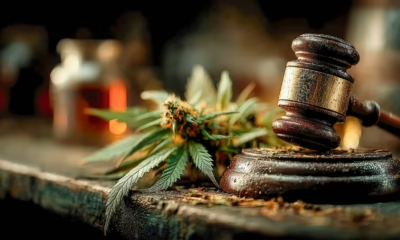

D.C. board rejects ANC 5A challenge to new medical cannabis retailer
-


AG opinion on hemp triggers legal chaos for sellers, consumers
-
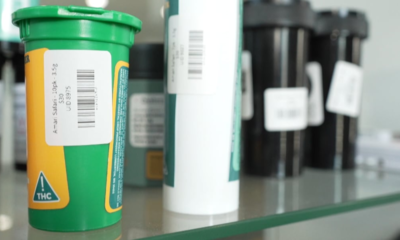

Mississippi Medical Marijuana Association pushing for policy changes
-
Mississippi Cannabis Program Adding 50 Patient IDs Per Day – Ganjapreneur
Mississippi Cannabis News
Dozen arrested after south Mississippi bust for illegal sales to underage customers
Published
6 hours agoon
September 14, 2025
An investigation into south Mississippi businesses selling “alcohol, dangerous illegal vapes, THC edibles,” and other age-restricted or illegal items to underage customers has resulted in at least a dozen arrests with more possible, according to law enforcement.
An announcement by the Perry County Sheriff’s Office said deputies began an investigation in early 2024 after fielding complaints that some businesses in the county were purposely allowing individuals under the age of 21 to purchase age-restricted products.
Sheriff Jacob Garner said as the investigation unfolded, it quickly became clear that the issue was not restricted to Perry County. Law enforcement in nearby Forrest, Lamar, Marion, Greene, Jefferson Davis, and Jones counties had received similar complaints about businesses in their jurisdictions.
Local agencies teamed up with the U.S. Drug Enforcement Agency for over a year’s worth of identifying subjects, initiating traffic stops, and fielding more calls for service. It culminated on Sept. 11 after 20 search warrants were carried out, with 12 individuals being arrested for their involvement in the businesses selling alcohol, tobacco, and THC to minors.
RELATED: Parents urged to talk with students about tobacco risks
“Anyone who chooses to open a business in Perry County for the purpose of selling illegal narcotics, vapes, or THC products to children or adults will be arrested and prosecuted,” Garner said. “These items – disguised as safe or legal – are destroying lives and endangering the health and safety of our citizens. Business owners profiting off the harm of our children and adults in our county will be prosecuted to the fullest extent of the law.”
Garner added that many of the defendants, while operating in different counties, were working in tandem. The Mississippi Bureau of Narcotics, the Mississippi Bureau of Investigation, and the Mississippi Highway Patrol aided in the investigation that remains active.
The following list of arrests and charges has been announced by the involved law enforcement agencies:
- Khaled Alhamidi, 55, of Petal: Two counts of aggravated trafficking of a controlled substance, trafficking while in possession of a firearm, and conspiracy to sell a controlled substance.
- Akram Alhamidi, 25, of Petal: Two counts of aggravated trafficking of a controlled substance, trafficking while in possession of a firearm, and conspiracy to sell a controlled substance.
- Omar Obaid, 40, of Hattiesburg: Two counts of aggravated trafficking of a controlled substance.
- Gaizan Abubaker, 37, of Houma, La.: Two counts of aggravated trafficking of a controlled substance.
- Rami Selah, 32, of Petal: Two counts of aggravated trafficking of a controlled substance, trafficking of a controlled substance while in possession of an enhanced firearm.
- Bassel Saleh, 53, of Petal: Two counts of aggravated trafficking of a controlled substance.
- Mark Shaibi, 24, of Petal: Two counts of aggravated trafficking of a controlled substance, trafficking of a controlled substance while in possession of a firearm.
- Gabr Al-Gabri, 36, of Petal: Two counts of aggravated trafficking of a controlled substance, trafficking of a controlled substance while in possession of an enhanced firearm.
- Basel Rashad, 30, of Petal: Two counts of aggravated trafficking of a controlled substance, trafficking while in possession of a firearm.
- Anmed Elgabry, 30, of Petal: Two counts of aggravated trafficking of a controlled substance, trafficking of a controlled substance while in possession of an enhanced firearm.
- Mohammed Riyadh, 31, of Hattiesburg: Two counts of aggravated trafficking of a controlled substance.
- Ahmedou Mohamedlaamar, 22, of Perry County: Aggravated trafficking of a controlled substance.

Author: mscannabiz.com
MScannaBIZ for all you Mississippi Cannabis News and Information.
Mississippi Cannabis News
US marijuana laws explained as Donald Trump reveals plans for change
Published
3 days agoon
September 12, 2025
Donald Trump is reportedly looking at reclassifying marijuana as a less dangerous drug in the US.
According to an article in the Wall Street Journal, the 79-year-old president is ‘looking at’ making a huge change, which would make it easier to buy and sell weed, making the multibillion-dollar industry more profitable.
The publication’s sources claimed that during a recent fundraiser held at his New Jersey golf club, where tickets for the event went for a whopping $1 million each, the Republican leader first spoke of the potential plans.
He allegedly said he was ‘looking at’ possibly changing the classification of marijuana from a Schedule I controlled substance to a Schedule III substance.
In simple terms, this doesn’t mean it would make the drug completely legal across the US, but it would help ease restrictions on it.
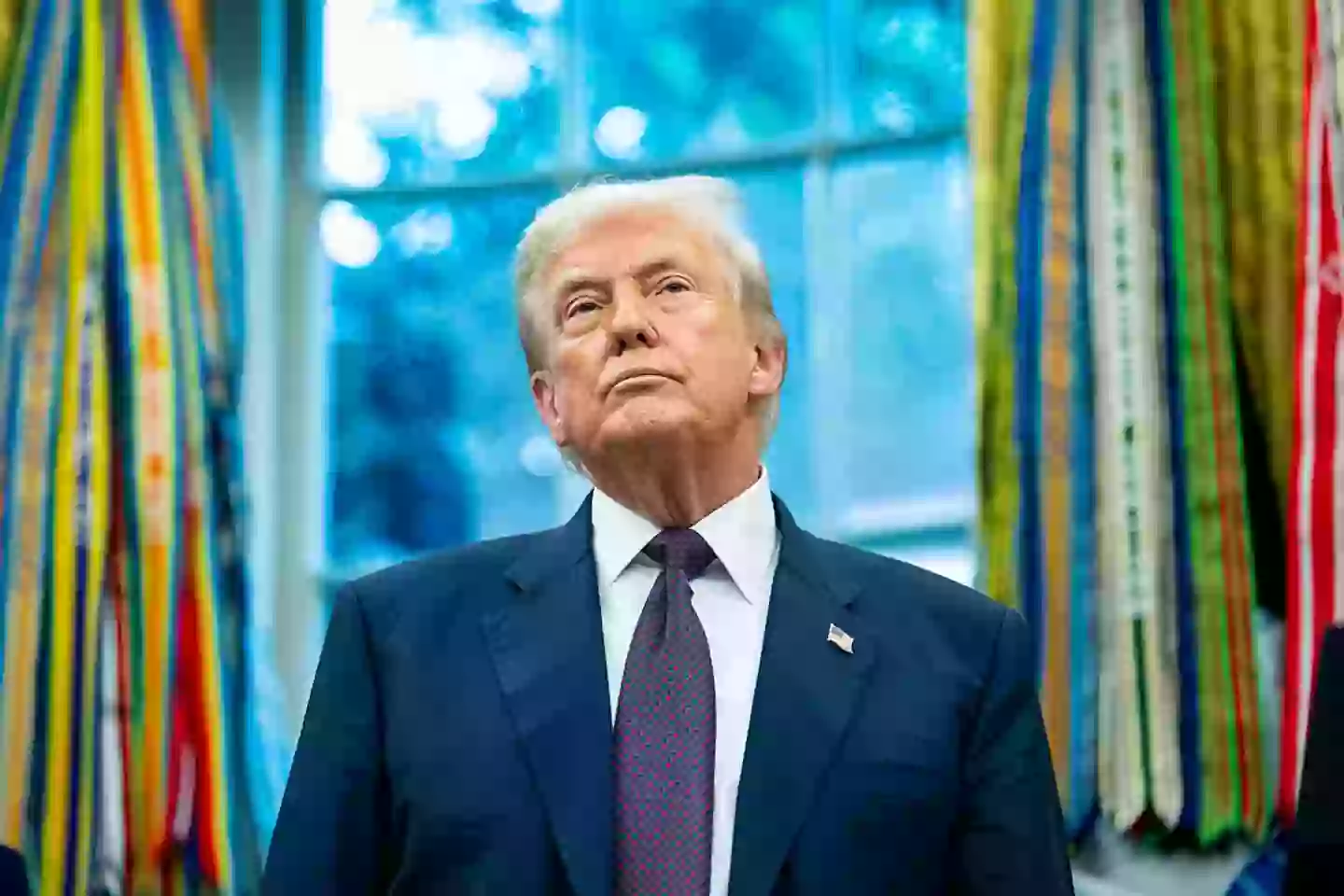
Donald Trump is reportedly considering whether to reclassify marijuana in the US (Bloomberg/Getty Images)
At the event, speaking of tweaking the federal restrictions for the drug, Trump allegedly said: “We need to look at that. That’s something we’re going to look at.”
Then, according to The Telegraph, speaking at a press conference on Monday, the US president affirmed: “We’re looking at reclassification, and we’ll make a determination over, I’d say, the next few weeks.”
He reportedly added that the decision is ‘very complicated’ – so, let’s break it down.
How do US marijuana laws work?
At a federal level, marijuana remains illegal in the US as per the 1970 Controlled Substances Act, however, many states have made their own rules for cannabis use.
As we mentioned earlier, it’s federally classified as a Schedule I drug – this means that federal law considers it to have a ‘high potential for abuse’ and ‘no currently accepted medical use in treatment in the United States’.
But, despite its federal classification, 24 states plus the District of Columbia have fully legalised weed, meanwhile others have opted to only allow it for medicinal purposes.
Cannabis legalisation in individual states can be done in a number of ways, ranging from fully illegal to legal for both medicinal and recreational use.
If you’re in a state that has completely legalised recreational marijuana and you’re 21 or older, you have the right to use cannabis products for your own personal enjoyment.
However, this doesn’t always mean it’s legal to purchase – confusing, I know.
For example, while it’s illegal to buy marijuana in Washington, DC, it’s legal for anyone 21 and older to possess up to two ounces of it and grow up to six marijuana plants in the district.
So essentially, it’s all down to the state you’re in and their specific regulations.
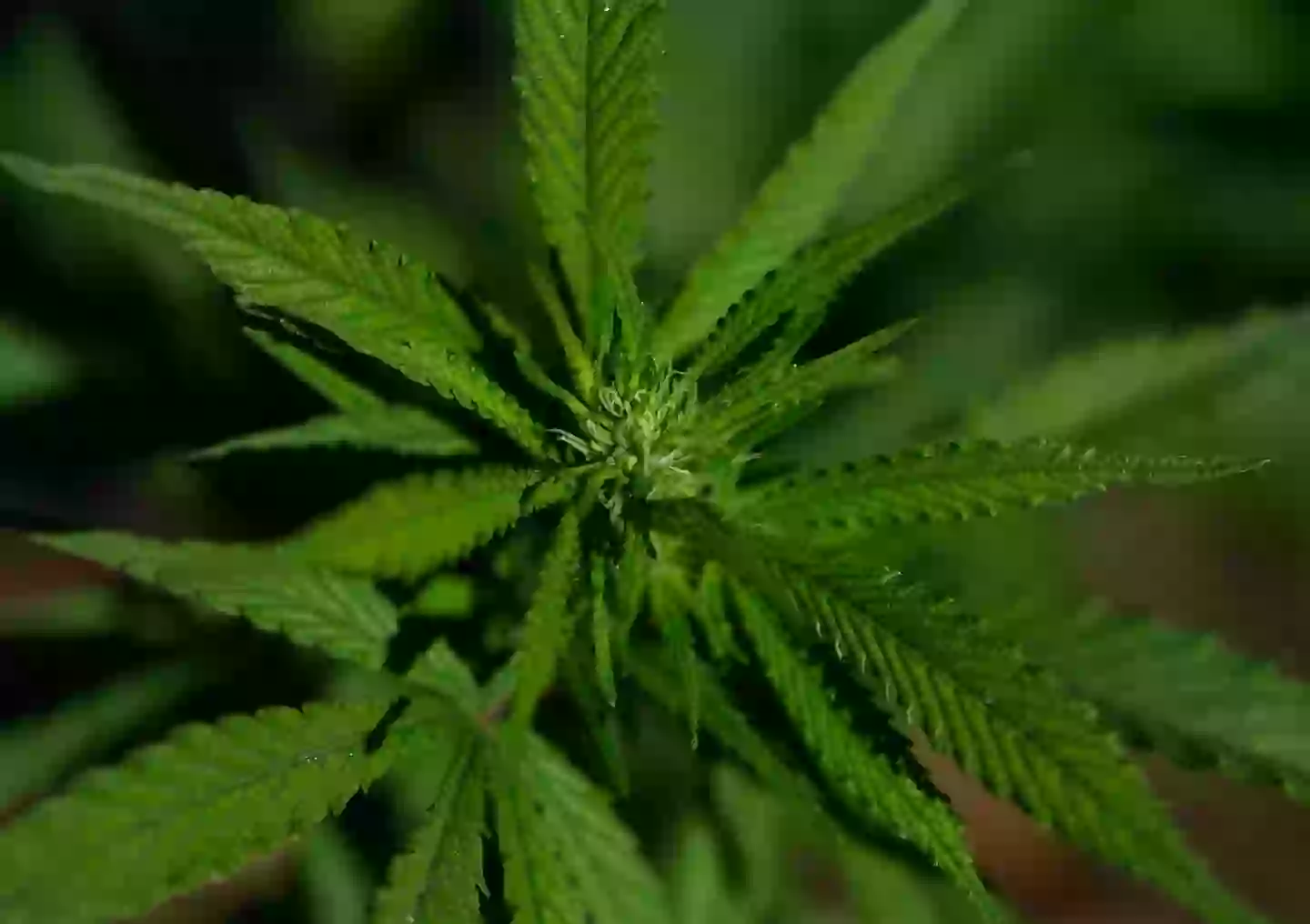
America’s cannabis laws can be a tricky subject to wrap your head around (Justin Sullivan/Getty Images)
What would happen if marijuana became a Schedule III drug?
If Trump were to go ahead and reclassify marijuana as a Schedule III drug, this would be a pretty big change up and down America.
According to the US government’s website, Schedule III drugs are defined as drugs ‘with a moderate to low potential for physical and psychological dependence’ and their ‘abuse potential is less than Schedule I and Schedule II drugs’.
Some examples of Schedule III drugs are products containing less than 90 milligrams of codeine per dosage unit, such as Tylenol with codeine, ketamine, anabolic steroids, and testosterone.
Meanwhile, Schedule I drugs are defined as drugs with no currently accepted medical use and a high potential for abuse.
Some examples include heroin, LSD, ecstasy, and as of right now, marijuana.
It’s important to note that the switch up would not make marijuana completely legal – it would just help ease restrictions and create more opportunities for medical uses and possible tax breaks for marijuana companies.
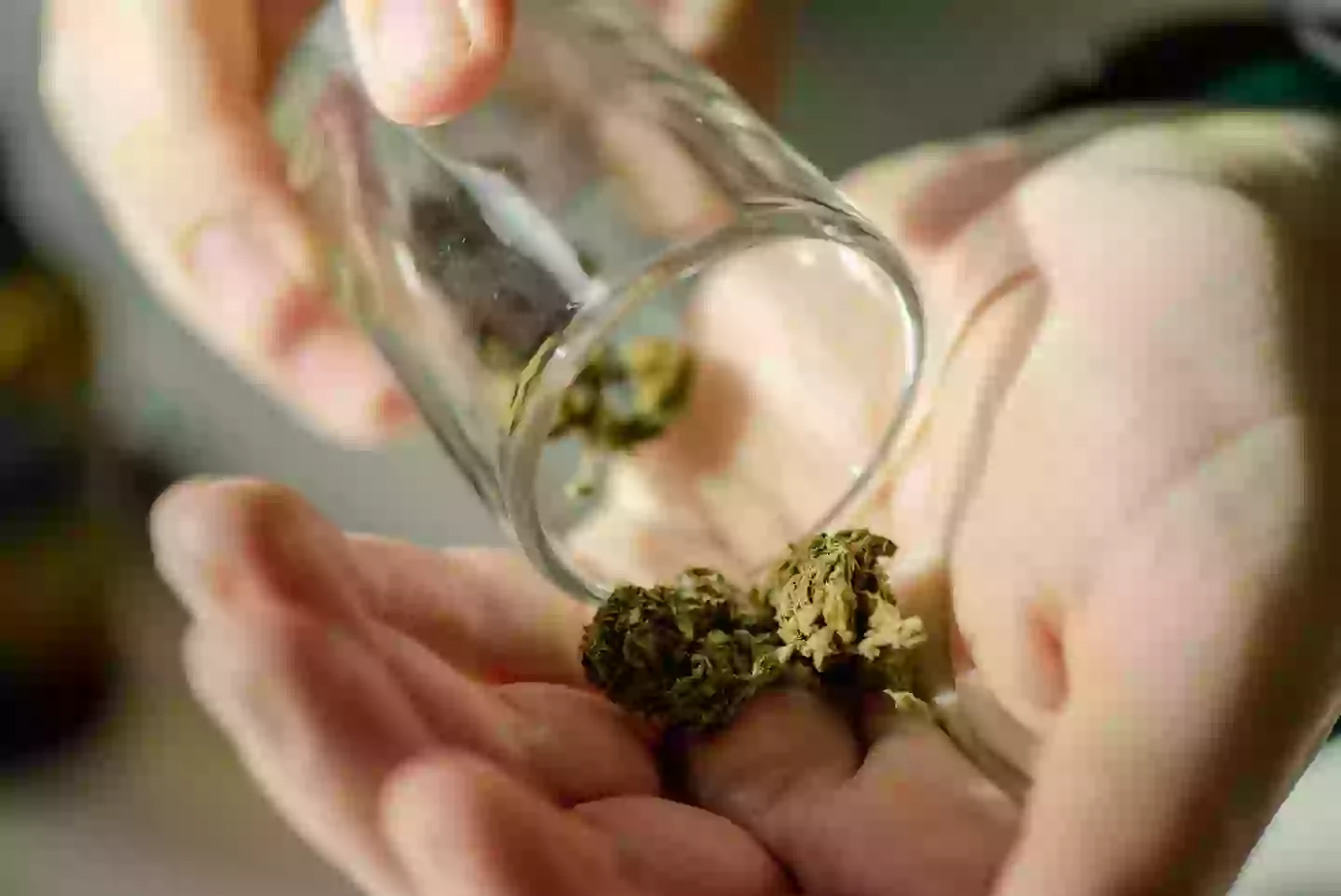
The Republican leader is said to be ‘looking at’ possibly switching marijuana from a Schedule I drug to a Schedule III drug (Emilija Manevska/Getty Images)
Which US states is marijuana currently legal in?
States where marijuana is fully legal:
- Alaska
- Arizona
- California
- Colorado
- Connecticut
- Delaware
- District of Columbia
- Illinois
- Maine
- Maryland
- Massachusetts
- Michigan
- Minnesota
- Missouri
- Montana
- Nevada
- New Jersey
- New Mexico
- New York
- Ohio
- Oregon
- Rhode Island
- Vermont
- Virginia
- Washington
States where marijuana is legal for medical purposes only:
- Alabama
- Arkansas
- Florida
- Georgia (CBD oil only)
- Hawaii
- Indiana (CBD oil only)
- Iowa (CBD oil only)
- Kentucky
- Louisiana
- Mississippi
- New Hampshire
- North Dakota
- Oklahoma
- Pennsylvania
- South Dakota
- Tennessee (CBD oil only)
- Texas
- Utah
- West Virginia
- Wisconsin (CBD oil only)
- Wyoming (CBD oil only)

Author: mscannabiz.com
MScannaBIZ for all you Mississippi Cannabis News and Information.
Mississippi Cannabis News
D.C. board rejects ANC 5A challenge to new medical cannabis retailer
Published
3 days agoon
September 12, 2025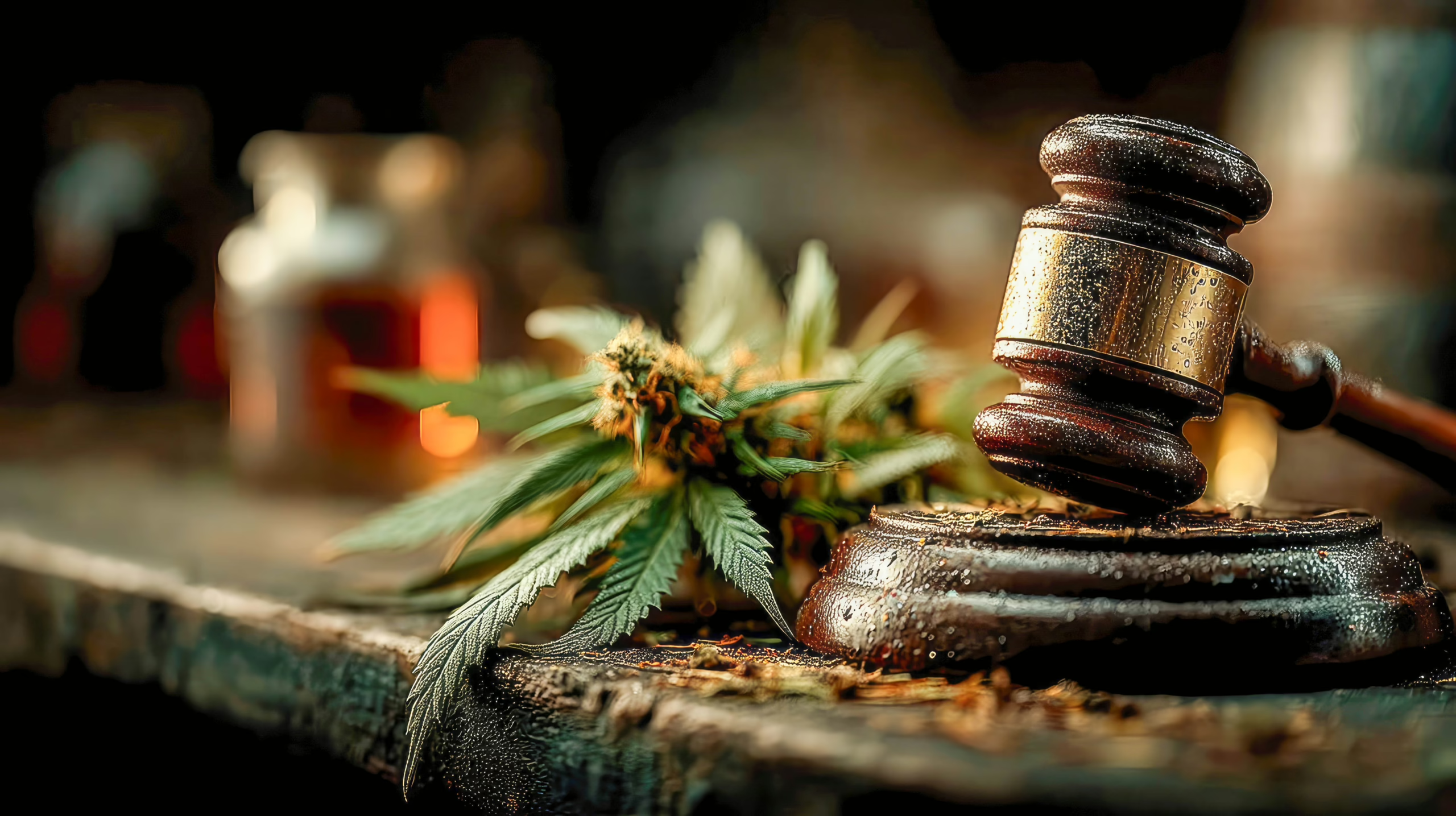
D.C. board rejects ANC 5A challenge to new medical cannabis retailer in Ward 5
The D.C. Alcoholic Beverage and Cannabis Board has rejected ANC 5A’s bid to reinstate its protest against a new Clinical Solutions medical cannabis dispensary in Ward 5, ruling that the ANC’s objections about daycare proximity and safety lacked the specific statutory grounds required to proceed; the license application remains on track, though the decision can still be appealed.
- Alt Sol was featured by wtop News.
- Catch up on today’s ABC Board meeting: watch, agenda.
- Sept. 24, Black Cannabis Week’s D.C. event, “From Prohibition to Policy.”
- A GOP-led House committee is advancing a bill to repeal Washington, D.C.’s Second Chance Amendment Act—which automatically expunges past cannabis possession records—framing the move as part of a broader “restoring law and order” initiative.
Workers protest at Maryland dispensary grand reopening over labor disputes
Cannabis workers and community members protested outside The Apothecarium’s grand reopening in Cumberland, Md., on Sept. 5, alleging the company engaged in union-busting and stalled contract negotiations since employees voted to unionize last year. UFCW Local 27 says workers are demanding fair pay and just cause protections, while the company has not yet issued a response.
Virginia’s 2025 gubernatorial race may decide future of legal cannabis market
Over half of Virginians have used cannabis, but the state currently lacks a legal retail market, though a bipartisan commission is studying its potential and the issue is expected to hinge on the 2025 gubernatorial election. Democratic candidate Abigail Spanberger supports establishing a regulated retail market to boost revenue and public safety, while Republican nominee Winsome Earle-Sears opposes legalization, citing cannabis as a gateway drug.
ICYMI: D.C. Dispensaries Boom, Trulieve Expands, Virginia Cannabis Hits a Turning Point
East Coast Roundup
Once a dominant force in Massachusetts‘ cannabis industry, Fitchburg-based Rev Clinics supplied products to approximately 75% of the state’s dispensaries. However, the company has faced significant challenges leading to its collapse.
A CBD shop in Connecticut shut down following allegations of illegal cannabis sales. The owner has agreed to a settlement.
New York’s licensed cannabis sales surpassed $2.09 billion, with over $1 billion generated in 2025 alone, indicating a robust and expanding market despite market turmoil.
The New York State Office of Cannabis Management announced the transition to the Metrc system for tracking cannabis from seed to sale will start in 2026.
Delaware’s recreational cannabis market achieved $7.3 million in sales during its inaugural month, signaling a strong consumer demand.
The Massachusetts Attorney General certified 44 ballot proposals for the 2026 election, including one aiming to repeal the state’s 2016 law legalizing recreational marijuana sales. This proposal, led by Sudbury resident Caroline Alcock Cunningham, seeks to shut down recreational dispensaries and impose civil penalties for public possession exceeding one ounce.
Culture & More
A new report highlights a significant rise in cannabis use among Americans aged 65 and older, with a 46% increase between 2021 and 2023.
USF Credit Union has introduced ‘Verde,’ a cannabis banking program aimed at providing financial services to the legal cannabis industry in Florida.
A new study found that THC can reach the human egg and may affect female fertility. Women who had THC in their follicular fluid showed a small increase in egg maturity but a lower rate of healthy embryos.
Around the Country
Mississippi’s medical cannabis program is expanding rapidly, with an average of 50 new patient cards issued daily. As of August 2025, the state has approximately 50,000 active cards, up from 40,000 in June 2024.
Texas retailers are relieved after the state legislature failed to pass a ban on THC products during the second special session. Despite this, Lt. Gov. Dan Patrick remains committed to a total ban, citing concerns over youth access.
California’s use of drones to monitor illegal cannabis cultivation led to unintended consequences, including the targeting of residents without cannabis operations. In Sonoma County, drone surveillance resulted in fines, evictions and legal battles for individuals who had no cannabis involvement.
From the swamp
Former Trump advisor Kellyanne Conway is reportedly a strong proponent of rescheduling cannabis, according to a GOP congressman. Her support adds a notable voice to the ongoing debate over federal cannabis policy reform.
OPINION: A Washington Post opinion piece argued that a loophole in the 2018 Farm Bill allows children access to psychoactive hemp-derived substances like delta-8 and delta-10 THC.
Employment Opportunity: DC Licensed Internet Retailer Dispensary Now Hiring. Contact info@getlocald.com to Learn More.

Author: mscannabiz.com
MScannaBIZ for all you Mississippi Cannabis News and Information.

Dozen arrested after south Mississippi bust for illegal sales to underage customers

The Toking Traveler: Why Amsterdam Weed Is Mostly Boof

Arkansas Medical Marijuana Sales Are On Track To Set A New Annual Record

When Cannabis Brands Blur Into Youth Culture, Regulators Notice: Lessons From Tobacco’s Past

Rhode Island Marijuana Dispensary License Application Process Officially Launches

Middle school student found with cannabis in bookbag, Charles County deputies say

Smugglers who brought drugs on an industrial scale into Wales jailed

Attorney pulls out bag of cannabis in NC Supreme Court hearing

WHO AM I? Man wanted for New Bern cannabis store theft

Cannabis packages under scrutiny

California authorities shut down nearly $30 million worth of illegal cannabis operations

A Green Light for Cannabis? Europe Waits While the U.S. Untangles the Red Tape

Move Over, Booze: Weed Drinks Pulled $1.1 Billion in U.S. Sales in 2024

Congressional Committee Votes To Repeal Marijuana Expungements Law In Washington, D.C.

Times Square Welcomed Its Brightest Cannabis Billboard Yet

Smoking Marijuana With A Water Bong Doesn’t Effectively Filter Compounds From Smoke, Study Suggests

A Beginner’s Guide for Watering Cannabis Plants

Massachusetts Lawmakers Approve Bill To Create Psychedelic Therapy Pilot Program

From the Dark Web to the Streets: Meet the Canadian Distributing Pure Cocaine to Save Lives

Congressional Committee Schedules Hearing On Chinese ‘Invasion’ Through ‘Illegal Marijuana’ Operations

Carmelo Anthony Marks Hall of Fame With Hall of Flame Cannabis Drop

California: Lawmakers Advance Legislation to Governor’s Desk Halting Tax Hike on Commercially Available Cannabis Products

Federal Agency Gives Anti-Marijuana Group A Platform To Make Claims About Legalization’s Impact That Aren’t Supported By Data

California Cannabis Excise Tax Going Back to 15% Next Month

Alert: Department of Cannabis Control updates data dashboards with full data for 2023

Connecticut Appoints The US’s First Cannabis Ombudsperson – Yes there is a pun in there and I’m Sure Erin Kirk Is Going To Hear It More Than Once!

5 best CBD creams of 2024 by Leafly

EU initiative begins bid to open access to psychedelic therapies
New Study Analyzes the Effects of THCV, CBD on Weight Loss

Free delta-9 gummies from Bay Smokes

5 best autoflower seed banks of 2024 by Leafly

Discover New York’s dankest cannabis brands [September 2024]

Press Release: CANNRA Calls for Farm Bill to Clarify Existing State Authority to Regulate Hemp Products

May 2024 Leafly HighLight: Pink Runtz strain

Curaleaf Start Process Of Getting Their Claws Into The UK’s National Health System – With Former MP (Resigned Today 30/5/24) As The Front Man

Local medical cannabis dispensary reacts to MSDH pulling Rapid Analytics License – WLBT

5 best THC drinks of 2024 by Leafly

Recreational cannabis on ballot for third time in South Dakota

Horn Lake denies cannabis dispensary request to allow sale of drug paraphernalia and Sunday sales | News

Mississippi city official pleads guilty to selling fake CBD products

6 best CBD gummies of 2024 by Leafly

Nevada CCB to Accept Applications for Cannabis Establishments in White Pine County – “Only one cultivation and one production license will be awarded in White Pine County”

The Daily Hit: October 2, 2024

5 best delta-9 THC gummies of 2024 by Leafly

Weekly Update: Monday, May 13, 2024 including, New Guide for Renewals & May Board meeting application deadline

PRESS RELEASE : Justice Department Submits Proposed Regulation to Reschedule Marijuana

5 best THCA flower of 2024 by Leafly

People In This State Googled ‘Medical Marijuana’ The Most, Study Shows
Trending
-

 California Cannabis Updates1 year ago
California Cannabis Updates1 year agoAlert: Department of Cannabis Control updates data dashboards with full data for 2023
-

 Breaking News1 year ago
Breaking News1 year agoConnecticut Appoints The US’s First Cannabis Ombudsperson – Yes there is a pun in there and I’m Sure Erin Kirk Is Going To Hear It More Than Once!
-

 best list1 year ago
best list1 year ago5 best CBD creams of 2024 by Leafly
-

 Business12 months ago
Business12 months agoEU initiative begins bid to open access to psychedelic therapies
-

 cbd1 year ago
cbd1 year agoNew Study Analyzes the Effects of THCV, CBD on Weight Loss
-

 Bay Smokes1 year ago
Bay Smokes1 year agoFree delta-9 gummies from Bay Smokes
-

 autoflower seeds12 months ago
autoflower seeds12 months ago5 best autoflower seed banks of 2024 by Leafly
-

 cannabis brands12 months ago
cannabis brands12 months agoDiscover New York’s dankest cannabis brands [September 2024]

